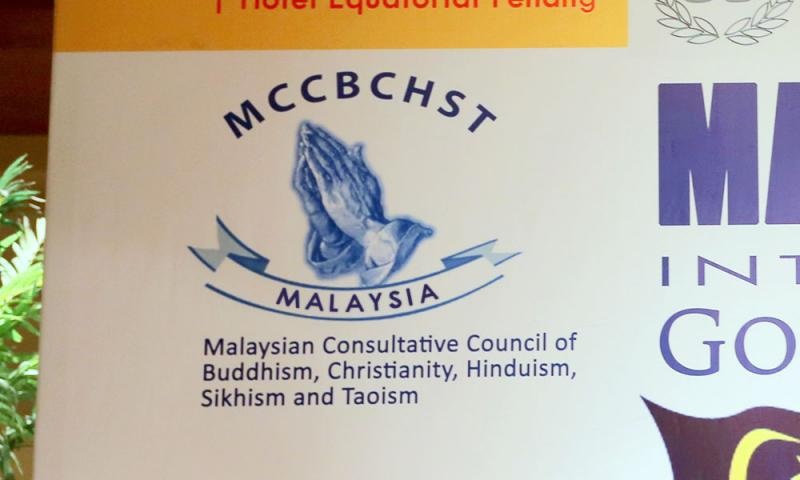MCCBCHST responds to UMNO’s rejection of non-Muslim minister
The Malaysian Consultative Council of Buddhism, Christianity, Hinduism, Sikhism, and Taoism (MCCBCHST) has issued a statement dated February 18, responding to remarks made by UMNO Secretary- General Asyraf Wajdi Dusuki regarding a proposal by YB Chow Yu Hui for the appointment of a Minister for Non-Muslim Affairs.
Feb 28, 2025

KUALA LUMPUR: The Malaysian Consultative Council of Buddhism, Christianity, Hinduism, Sikhism, and Taoism (MCCBCHST) has issued a statement dated February 18, responding to remarks made by UMNO Secretary- General Asyraf Wajdi Dusuki regarding a proposal by YB Chow Yu Hui for the appointment of a Minister for Non-Muslim Affairs.
Dusuki rejected the proposal, citing Article 3 of the Federal Constitution, which designates Islam as the religion of the Federation, and called on YB Chow to “show respect to Article 3.” Dusuki further emphasised that non-Muslim leaders from coalition parties had agreed not to challenge the Constitution’s stance on Islam, the special position of Malays and Bumiputras, the Malay rulers, and the national language.
In response, the MCCBCHST clarified that proposing the appointment of a minister for non-Muslim affairs should not be viewed as disrespecting Islam. While the MCCBCHST does not comment on the necessity of such a role, it reaffirmed its support for the provisions in the Constitution that uphold Islam as the religion of the Federation, the special position of Malays and natives of Sabah and Sarawak, the position of the Yang di-Pertuan Agong and the Malay rulers, and the Malay language as the national language.
The MCCBCHST further emphasised the need to revisit the meaning of Article 3(1), which states that “Islam is the religion of the Federation, but other religions may be practised in peace and harmony in any part of the Federation.” The MCCBCHST highlighted the landmark ruling in the 1988 case of Che Omar bin Che Soh v. Public Prosecutor, where the Supreme Court clarified that the term “Islam” in Article 3 refers to rituals and ceremonies, rather than a complete way of life. The ruling clarified that if the Constitution intended for Islamic law to override other laws, it would have explicitly provided for such provisions, which it did not. The Court also noted that Article 162 of the Constitution maintains the continuity of secular law unless it contradicts the Constitution.
The MCCBCHST pointed out that the ruling in Che Omar bin Che Soh and subsequent decisions, including Indira Gandhi A/P Mutho v. Pengarah Jabatan Agama Islam Perak (2018), Iki Putra Bin Mubarak v. Kerajaan Negeri Selangor (2021), and Nik Elin Zurina Binti Nik Abdul Rashid & Anor v. Kerajaan Negeri Kelantan (2024), reaffirmed that the scope of Article 3(1) is limited to Islamic rituals and ceremonies and does not affect other constitutional rights or provisions.
Furthermore, the MCCBCHST referenced Article 3(4), which stipulates that “Nothing in this Article derogates from any other provision of this Constitution,” ensuring that Article 3(1) cannot override other constitutional provisions. According to Professor Dr Shad Saleem Faruqi, Article 3(4) prevents Article 3(1) from abolishing or extinguishing any rights or laws enshrined in the Constitution.
In conclusion, the MCCBCHST reiterated that proposals such as the call for a Minister for Non-Muslim Affairs cannot be dismissed simply by invoking Article 3(1), as it does not have the power to alter fundamental rights and provisions in the Constitution. The MCCBCHST called for greater education on the Federal Constitution in schools to promote understanding of these key principles.







Total Comments:1